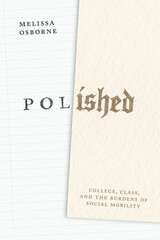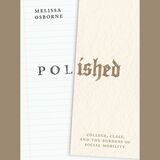13 start with J start with J
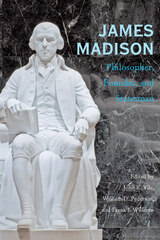
James Madison: Philosopher, Founder, and Statesman presents fresh scholarship on the nation’s fourth president, who is often called both the father of the U.S. Constitution and the father of the Bill of Rights. These essays by historians and political scientists from the United States and abroad focus on six distinct aspects of Madison’s life and work: his personality and development as a statesman; his work at the Constitutional Convention of 1787 and contributions to larger constitutional design; his advocacy for the adoption of the Bill of Rights; his controversial role as a party leader; his presidency; and his life after leaving office.
James Madison continues to be regarded as one of America’s great political theorists, a man who devoted his life to, and who found fulfillment in, public service. His philosophical contributions remain vital to any understanding of the modern American polity. This book will be of great interest to political scientists and theorists, as well as to historians of early American history and politics.



He was the second pitcher in major league history to win 100 games in each league. The first was CY Young. He was the second pitcher to strike out 1000 in each league; again, only Cy Young beat hims to it. When Bunning retired at the end of the 1971 season, only one man -- Walter Johnson -- had more career strikeouts.
A proud, intensely competitive man, Bunning relished his duels with Ted Williams, Micky Mantle, and other slugging superstars of the day. What he didn't relish was dealing with sportswriter who didn't do their homework and with baseball leaders whose mismanagement, Bunning felt, jeopardized the game's place in the nation's heart. He waged battles with the likes of former commissioner Peter Ueberroth and club-owner-turned-interim-commissioner Bud Selig.
But Bunning did more than play baseball. He was a driving force in the early years of the Players Association, one of the men responsible for choosing Marvin Miller as head of the union. Bunning also was a manager in the minor leagues and in Puerto Rico and the Dominican Republic and was even a player's agent for a time. His baseball career behind him, he began a second career in politics. With a huge assist from his wife, Mary, the mother of their nine children, he waged an unsuccessful gubernational campaign in Kentucky and then became a six-term congressman. Bunning is currently running for the U.S. Senate seat in Kentucky.

The New England of his day regarded John Gorham Palfrey's life as blameless and exemplary, a nineteenth-century "monument to the Puritan ideal of rectitude." Yet he himself once called it "his personal tragicomedy." At least, it was diverse, for Palfrey had been historian, Harvard educator, Unitarian minister, Massachusetts politician, editor of the North American Review, and crusader against slavery, and himself an emancipator. During his lifetime, from 1796 to 1881, Palfrey participated, sometimes reluctantly, in revolutionary changes in the political, economic, and intellectual climate of New England.
In his stormy political career, Palfrey not only was Massachusetts Secretary of State, member of Congress, and Postmaster of Boston, but also played a key role in the formation of the Free Soil Party. When the Whigs, in the name of national unity and compromise, seemed to ignore the moral necessities of the slavery question, he joined with such men as Charles Francis Adams, Charles Sumner and Richard Henry Dana, Jr., to reaffirm traditional moral values. From this struggle, Palfrey emerged a political loser. Hampered by inflexibility, he laterretreated to his study to write his massive history of New England, nursing his disappointment and cherishing his sense of rectitude. We are left with the image of a man whose achievements were substantial, perhaps because he insisted upon making his life a Bay State morality play.
For this biography of Palfrey, Gatell has used papers of Palfrey's contemporaries and of the Palfrey family manuscripts, among them an unpublished autobiography, itself a search for meaning in a long and perplexing life.

Educated in Vienna just after the turn of the century, Frank became the leader of the younger generation of architects in Austria after the First World War. But Frank fell from grace when he emerged as a forceful critic of the extremes of modern architecture and design during the early 1930s. Dismissing the demands for a unified modern style, Frank insisted that it was pluralism, not uniformity, that most characterized life in the new machine age. He called instead for a more humane modernism, one that responded to people's everyday needs and left room for sentimentality and historical influences. He was able to put these ideas into practice when, in 1933, he was forced to leave Vienna for Sweden. There his work came to define Swedish (or Scandinavian) modern design. For more than thirty years he was the chief designer for the Stockholm furnishings firm Svenskt Tenn, producing colorful, cozy, and eclectic designs that provided a refreshing alternative to the architectural mainstream of the day and presaged the coming revolt against modernism in the 1960s.
In this sensitive study of one of the twentieth century's seminal architects and thinkers, Christopher Long offers new insight into Josef Frank's work and ideas and provides an important contribution to the understanding of modernist culture and its history.
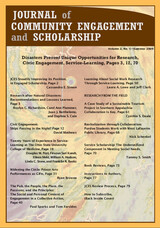
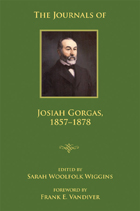
Josiah Gorgas was best known as the highly regarded Chief of Confederate Ordnance. Born in 1818, he attended West Point, served in the U.S. Army, and later, after marrying Amelia Gayle, daughter of a former Alabama governor, joined the Confederacy. After the Civil War he served as president of The University of Alabama until ill health forced him to resign. His journals, maintained between 1857 and 1878, reflect the family's economic successes and failures, detail the course of the South through the Civil War, and describe the ordeal of Reconstruction. Few journals cover such a sweep of history. An added dimension is the view of Victorian family life as Gorgas explored his feelings about aspects of parental responsibility and transmission of values to children--a rarely documented account from the male perspective. His son, called Willie in the journals, was William Crawford Gorgas (1854-1920), who was noted for his fight to control yellow fever and who became surgeon general of the United States.
In his foreword to the volume, Frank E. Vandiver states: "Wiggins has done much more than present a well-edited version of Gorgas's diaries and journals; she has interpreted them in full Gorgas family context and in perspective of the times they cover. . . . Wiggins informs with the sort of editorial notes expected of a careful scholar, but she enlightens with wide knowledge of American and southern history. . . . Josiah Gorgas [was] an unusually observant, passionate man, a 'galvanized Rebel' who deserves rank among the true geniuses of American logistics."
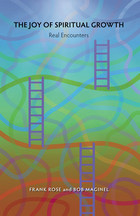
Frank Rose and Bob Maginel provide people seeking spiritual growth and recovery a practical handbook for accomplishing their goals. Recognizing that spiritual growth can be stymied by materialism and external preoccupations, the authors offer tasks and exercises that can be used repeatedly to help tame the "wild beasts," the negative emotions that can control our lives and destroy our relationships with others.
A special feature of the book is the "Reporting on the Task" section at the end of each of the twelve tasks, in which participants who were enrolled in a real-life twelve-week seminar share their struggles in their own words. Their successes and setbacks in applying the tasks to daily life underscore the ongoing nature of the recovery process and remind us that the joy of spiritual growth is linked to enjoying the journey.

Through a series of eight exercises, readers learn how to raise their awareness and their spirits to a higher level, to connect more readily with their Higher Power, and to unlock authentic spiritual joy even at life’s most challenging moments. For people working in groups, the authors include suggestions for structuring spiritual growth meetings and tools for discussion facilitators. For individuals using the book alone, Rose and Maginel provide transcripts of their own group’s discussions, challenges, and “Aha!” moments, so the reader can share in the group experience.
Building on their previous book, The Joy of Spiritual Growth, Rose and Maginel offer more of the gentle wisdom and practical techniques that have made their spiritual growth program an enduring success.
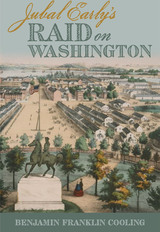
Amid an air of stalemate, the Confederates planned a bold move to strike at Washington, DC and capture or scatter Lincoln and his cabinet. In command of the operation was the colorful and unpredictable Jubal “Old Jube” Anderson Early, brought in to replace the fallen Stonewall Jackson. Less well known than the bloodier Antietam and Gettysburg, Early's campaign, Cooling argues, had greater significance.
In addition to the persnickety bachelor Anderson, this account introduces many colorful participants, including railroad president John W. Garrett, the politically influential Blair family, and Elizabeth “Aunt Betty” Thomas, a free Black woman, who was said to have saved Lincoln’s life by shouting at him: “Get down, you fool!” when he came under fire at Fort Stevens. Exciting and comprehensive, Civil War scholars and readers will delight in this masterful account.
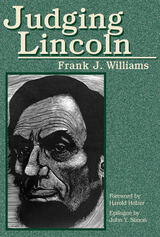

For over a century, as women have fought for and won greater freedoms, concern over an epidemic of female criminality, especially among young women, has followed. Fear of this crime wave—despite a persistent lack of evidence of its existence—has played a decisive role in the development of the youth justice systems in the United States and Canada. Justice for Girls? is a comprehensive comparative study of the way these countries have responded to the hysteria over “girl crime” and how it has affected the treatment of both girls and boys.
Tackling a century of historical evidence and crime statistics, Jane B. Sprott and Anthony N. Doob carefully trace the evolution of approaches to the treatment of young offenders. Seeking to keep youths out of adult courts, both countries have built their systems around rehabilitation. But, as Sprott and Doob reveal, the myth of the “girl crime wave” led to a punitive system where young people are dragged into court for minor offenses and girls are punished far more severely than boys. Thorough, timely, and persuasive, Justice for Girls? will be vital to anyone working with troubled youths.
READERS
Browse our collection.
PUBLISHERS
See BiblioVault's publisher services.
STUDENT SERVICES
Files for college accessibility offices.
UChicago Accessibility Resources
home | accessibility | search | about | contact us
BiblioVault ® 2001 - 2024
The University of Chicago Press





